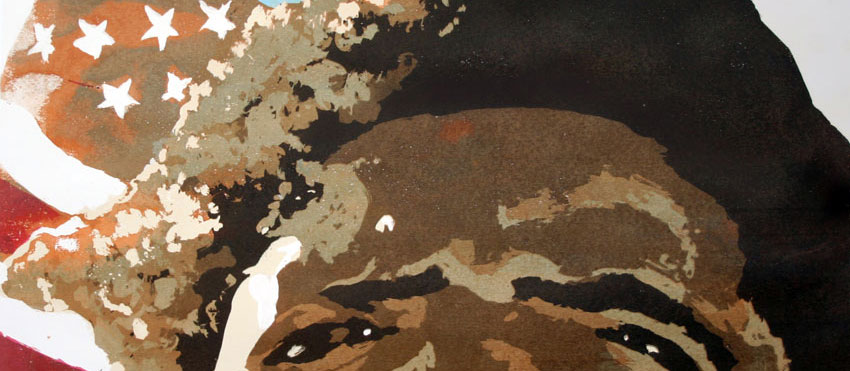Schedule
Friday, February 20
Carver Museum and Cultural Center
1165 Angelina Street, Austin, TX 78702
5:30—7:00 PM |
Prison Protest Poetry — Spoken Word Performances Prison Protest Poetry invites voices to the table to speak truth to power about the impact of the criminal justice systems on our lives and communities. |
7:30 PM |
Freedom Weekend Reception |
Saturday, February 21
Eidman Courtroom, University of Texas School of Law
727 E. Dean Keeton Street, Austin, TX 78705
12:30 PM |
>Welcome and Opening Remarks Karen Engle, Professor of Law and Director, Rapoport Center for Human Rights and Justice Professor Gregory Vincent, Professor of Law and Vice President, Division of Diversity and Community Engagement Kaleema Al-Nur, Post Graduate Fellow, Rapoport Center for Human Rights and Justice |
12:45—2:00 PM |
‘When the Levees Broke’: Un-Civil Rights in America The author of the widely acclaimed book, Eyes Off the Prize: The African American Struggle for Human Rights, 1944–1955, will introduce the fascinating and little known history of the rise and fall of the Black Human Rights movement in the U.S. She chronicles how the Black human rights movement eventually gave way to the “narrowly focused and tantalizingly inadequate series of civil rights measures” which are more familiar to us today. Professor Anderson seamlessly connects historical human rights struggles of Black communities with human rights realities of today. Introduction: Juliet Walker, UT, Professor, Department of History |
2:00—2:15 PM |
Break |
2:00—3:15 PM |
“‘We Charge Genocide’ 50 Years Later: The Relevance of Human Rights as a Tool for Black Liberation” Roger Wareham, Criminal Law and Human Rights Attorney (Brooklyn, New York) Since 1989, Attorney Wareham has annually presented evidence of human rights violations facing people of color in the United States before the United Nations’ Human Rights Council and other international bodies. Wareham will discuss the ways that the Black Human Rights Movement has been revitalized as communities increasingly reassert their claims on the international stage, form coalitions and use international law. He will consider whether a human rights-based strategy is useful for advancing human rights for African Americans in the United States. [*‘We Charge Genocide: The Crime of Government against the Negro People,’ is the name of the petition delivered to the newly formed United Nations by the Civil Rights Congress in 1951. It charged the U.S. with genocide against its Black citizens under the UN Genocide Convention, which defined genocide as: “Any intent to destroy, in whole or in part, a national, racial, or religious group.” The petition began, “Out of the inhuman black ghettos of American cities, out of the cotton plantations of the South, comes this record of mass slayings on the basis of race, of lives deliberately warped and distorted by the willful creation of conditions making for premature death, poverty and disease.”] Introduction: Ja-Mes Sloan, UT, Thurgood Marshall Legal Society |
3:30—3:45 PM |
Break |
3:45—5:00 PM |
“Let My People Go”: The Impact of the Criminal Justice System on Black Communities Moderator: Roger Wareham, Criminal Law and Human Rights Attorney, Brooklyn, New York Joy James, Visiting Scholar, UT, Center for African and African American Studies [CAAAS] Soffiyah Elijah, Criminal Law Attorney and Deputy Director, Harvard University School of Law Criminal Justice Institute Nelson Linder, President, Austin Chapter NAACP Cliff Brown, Office of the Police Monitor, Austin Police Department Robert Owen, Clinical Professor, UT, Capital Punishment Clinic The U.S. now imprisons more people than any other country in the world. Black men are, proportionally speaking, the largest prison population. In Texas, 40% of the prison population is African American in a state where Blacks only make up 12% of the population. Additionally, Black women are the fastest growing population of incarcerated Americans. Nearly 75% of incarcerated women have dependent children. Moreover, Black youth are rapidly being criminalized by abusive disciplinary policies that push them out of the school yard and into juvenile correctional facilities. In the short time between Barack Obama’s election and inauguration as the first African American President, horrifying cases of fatal encounters between police and African Americans made the headlines. Following the murder of Kevin Brown, the Department of Justice investigated the Austin Police Department and the City of Austin over allegations that African Americans and Hispanic residents were disproportionately subjected to “excessive force.” During the DOJ’s independent review, three more incidences of police brutality were alleged. This short recitation of the impact of incarceration on African Americans is only part of the web of wrongs and the human rights implications of incarceration and criminal justice policies for African Americans. Presenters will address a range of issues within the criminal justice system that disproportionately impact Black communities, including: police Brutality, the cradle-to-prison-pipeline, the prison industrial complex, and capital punishment. Introductions: Omi Osun Olomo, Director, Center for African and African American Studies [CAAAS] |
5:00—6:15 PM |
40 Acres and a Mule or the White House?: Imagining Justice Moderator: Melynda Price, UT, Visiting Research Fellow in the Capital Punishment Center and Assistant Professor at the University of Kentucky College of Law Dr. Edmund T. Gordon,
Associate Professor of Anthropology & Director, Diversity
and Community Engagement The title of this session is borrowed from the announcer of a local radio station who exclaimed the day after the 2008 presidential election, “You can keep your forty acres and a mule; we’ll take the White House!” Forty acres echoes a promise to Black People of economic opportunity, a viable stake in this country, and preservation of cultural heritage. Forty acres is a reminder of the continued efforts to secure the economic, cultural and social rights of human rights for Black Americans. Whereas, the white house represents the civil and political aspects of human rights, that is, political participation and representation. But, together, the forty acres and the White House tell a more complete story of the full spectrum of human rights and represent the opportunity to imagine and strategize the ongoing struggle for justice. Community Strategists
|
6:15—7:30 PM |
Closing Reception
|

